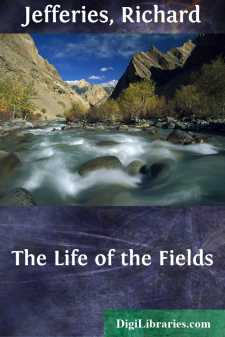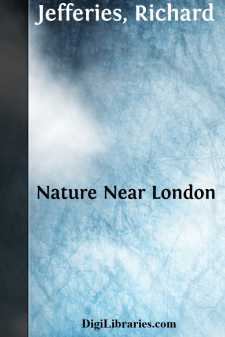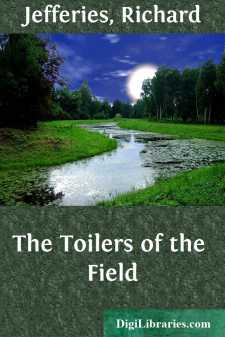Categories
- Antiques & Collectibles 13
- Architecture 36
- Art 48
- Bibles 22
- Biography & Autobiography 813
- Body, Mind & Spirit 142
- Business & Economics 28
- Children's Books 15
- Children's Fiction 12
- Computers 4
- Cooking 94
- Crafts & Hobbies 4
- Drama 346
- Education 46
- Family & Relationships 57
- Fiction 11828
- Games 19
- Gardening 17
- Health & Fitness 34
- History 1377
- House & Home 1
- Humor 147
- Juvenile Fiction 1873
- Juvenile Nonfiction 202
- Language Arts & Disciplines 88
- Law 16
- Literary Collections 686
- Literary Criticism 179
- Mathematics 13
- Medical 41
- Music 40
- Nature 179
- Non-Classifiable 1768
- Performing Arts 7
- Periodicals 1453
- Philosophy 64
- Photography 2
- Poetry 896
- Political Science 203
- Psychology 42
- Reference 154
- Religion 513
- Science 126
- Self-Help 84
- Social Science 81
- Sports & Recreation 34
- Study Aids 3
- Technology & Engineering 59
- Transportation 23
- Travel 463
- True Crime 29
Pageant of Summer
Description:
Excerpt
I.
Green rushes, long and thick, standing up above the edge of the ditch, told the hour of the year as distinctly as the shadow on the dial the hour of the day. Green and thick and sappy to the touch, they felt like summer, soft and elastic, as if full of life, mere rushes though they were. On the fingers they left a green scent; rushes have a separate scent of green, so, too, have ferns, very different from that of grass or leaves. Rising from brown sheaths, the tall stems enlarged a little in the middle, like classical columns, and heavy with their sap and freshness, leaned against the hawthorn sprays. From the earth they had drawn its moisture, and made the ditch dry; some of the sweetness of the air had entered into their fibres, and the rushes—the common rushes—were full of beautiful summer. The white pollen of early grasses growing on the edge was dusted from them each time the hawthorn boughs were shaken by a thrush. These lower sprays came down in among the grass, and leaves and grass-blades touched. Smooth round stems of angelica, big as a gun-barrel, hollow and strong, stood on the slope of the mound, their tiers of well-balanced branches rising like those of a tree. Such a sturdy growth pushed back the ranks of hedge parsley in full white flower, which blocked every avenue and winding bird’s-path of the bank. But the “gix,” or wild parsnip, reached already high above both, and would rear its fluted stalk, joint on joint, till it could face a man. Trees they were to the lesser birds, not even bending if perched on; but though so stout, the birds did not place their nests on or against them. Something in the odour of these umbelliferous plants, perhaps, is not quite liked; if brushed or bruised they give out a bitter greenish scent. Under their cover, well shaded and hidden, birds build, but not against or on the stems, though they will affix their nests to much less certain supports. With the grasses that overhung the edge, with the rushes in the ditch itself, and these great plants on the mound, the whole hedge was wrapped and thickened. No cunning of glance could see through it; it would have needed a ladder to help any one look over.
It was between the may and the June roses. The may bloom had fallen, and among the hawthorn boughs were the little green bunches that would feed the red-wings in autumn. High up the briars had climbed, straight and towering while there was a thorn or an ash sapling, or a yellow-green willow, to uphold them, and then curving over towards the meadow. The buds were on them, but not yet open; it was between the may and the rose.
As the wind, wandering over the sea, takes from each wave an invisible portion, and brings to those on shore the ethereal essence of ocean, so the air lingering among the wood and hedges—green waves and billows—became full of fine atoms of summer. Swept from notched hawthorn leaves, broad-topped oak-leaves, narrow ash sprays and oval willows; from vast elm cliffs and sharp-taloned brambles under; brushed from the waving grasses and stiffening corn, the dust of the sunshine was borne along and breathed. Steeped in flower and pollen to the music of bees and birds, the stream of the atmosphere became a living thing. It was life to breathe it, for the air itself was life. The strength of the earth went up through the leaves into the wind. Fed thus on the food of the Immortals, the heart opened to the width and depth of the summer—to the broad horizon afar, down to the minutest creature in the grass, up to the highest swallow. Winter shows us Matter in its dead form, like the Primary rocks, like granite and basalt—clear but cold and frozen crystal. Summer shows us Matter changing into life, sap rising from the earth through a million tubes, the alchemic power of light entering the solid oak; and see!...












